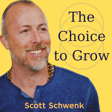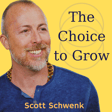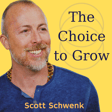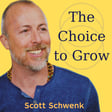
The Body Remembers: Wendi Michelle on Healing from the Inside Out
In this episode of The Choice to Grow, Wendi Michelle shares her personal and professional journey of healing—moving from chronic illness and childhood trauma to becoming a voice for embodied well-being. We talk about radical honesty, the body’s intelligence, the complexity of trauma, and why true healing takes more than mindset. If you’ve ever felt trapped by a diagnosis or disconnected from your body, this conversation offers an empowering reframe. Your body remembers, and it’s always trying to help you come home.
Wendi Michelle - Epigenetics Strategist, Product Formulator, Consumer Health Advocate
Wendi Michelle is an epigenetics strategist, product formulator, and consumer health advocate with a unique focus on the intersection of genetic expression, environmental inputs, and generational wellness. With a background in advanced human biology, functional nutrition and early childhood development, her work centers on providing tangible solutions and empowering individuals and couples to optimize their health and their families health for generations to come.
At the core of everything she does is the principle of generational health—the understanding that the biological, emotional, and environmental choices we make today don’t just affect our immediate wellbeing, but shape the genetic, developmental, and epigenetic outcomes of future generations. Her mission is to interrupt patterns of silent inheritance and replace them with conscious preparation, informed stewardship, and generational strength.
As a product formulator and health industry consultant, she is known for her unwavering commitment to ingredient integrity and evidence-based standards in wellness product development. She combines scientific rigor with a deep understanding of real-world consumer needs, helping to close the gap between clinical efficacy and accessible, non-toxic living. https://www.wholehealthyandfree.com
Scott Schwenk - Master Coach, Spiritual Teacher, Culture Architect
Scott’s teachings, courses and private mentoring guide leaders, seekers and creatives to explore their deepest selves in service of thriving on all levels of being, both individually and relationally.
Host and creator of the podcast The Choice To Grow, Scott is known for his hugely popular courses and workshops with OneCommune.com, Younity.com, Wanderlust Festivals, and Unplug Meditation, Scott has been catalyzing the inner evolution of others for decades: helping them to grow, transform obstacles into opportunities, and find Love within.
Scott spent several years living and studying in a meditation monastery which introduced him to the core body of Tantric meditation traditions which continue to flow through each of his teachings. Scott continues to study and teach from two key Tantric lineage streams.
Apprenticeships in leadership development, meditation and philosophy training, shadow work/shadow resolution and spiritual awakening are all part of Scott’s development into the thought-leader that he is today. He continues to refine his offerings studying and practicing with key innovators at the leading edges of human development.
Scott’s teachings support the entire person to not only progressively recognize, stabilize and embody our inextricable oneness with the source of creation (Waking Up), but also to resolve the wounds of the past (Cleaning Up), continually expand our capacities for wider and more inclusive perspectives on any moment (Growing Up) and creatively and joyfully participate and collaborate with all of life as a loving thriving human being (Showing Up).
You can receive a free guided meditation and explore Scott’s courses, workshops, retreats, training and master coaching at https://scottschwenk.com and can find him on Instagram @thescottschwenk.



